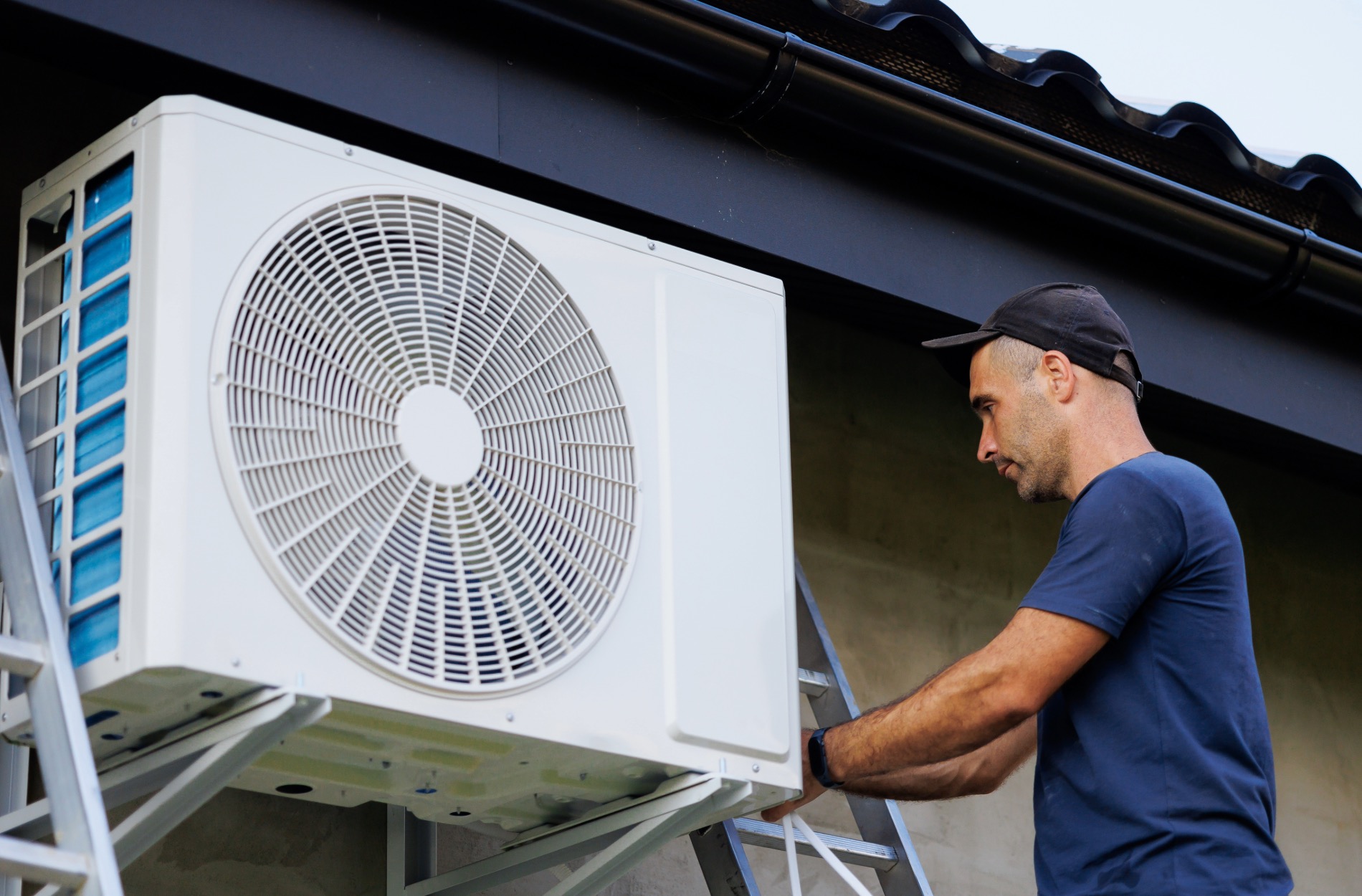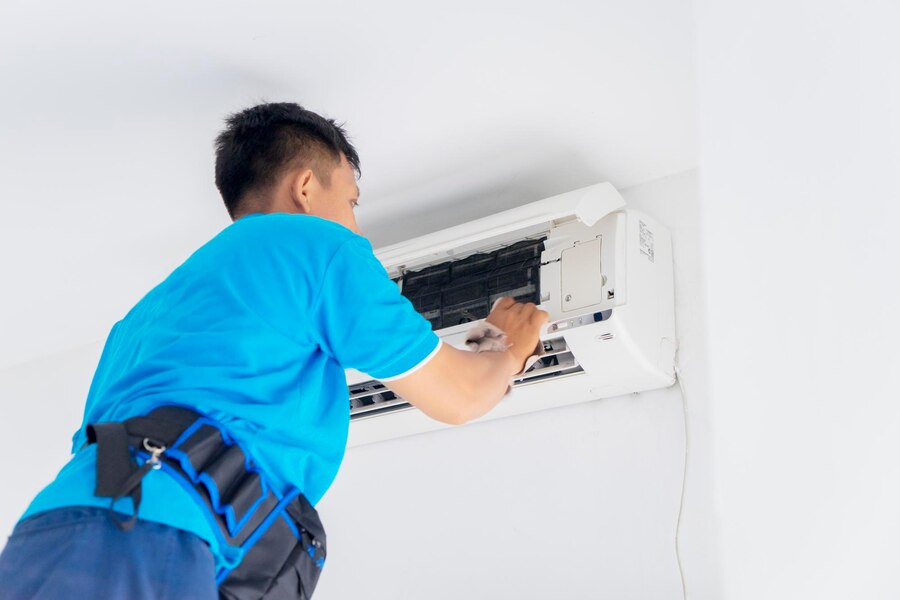Why Is Your HVAC System Making A Buzzing Sound In Sawgrass?
A buzzing noise coming from an HVAC system isn’t just irritating. It’s often a sign that something is wrong and needs attention. Homeowners in Sawgrass who’ve noticed this sound coming from their outside unit or indoor vents shouldn’t ignore it. Summer temperatures put your system under more stress than usual, and any strange sound could mean a part is loose, electrical trouble is starting, or debris is caught in the unit. Letting these issues go unchecked can affect how well the system cools your home and could even lead to more expensive damage down the line.
If your home feels warmer than usual and your system is running constantly, that buzzing might not be a coincidence. Noise is one of the clearest signals that something internal isn't functioning right. Understanding why the unit is buzzing can help you take quick action and avoid losing cooling completely in the middle of peak summer in Sawgrass. The good news is, most causes of buzzing sounds can be repaired or avoided when spotted early.
Causes of HVAC Buzzing Sounds
Buzzing noises can come from different parts of the system and usually mean that tension, misalignment, or electrical interference is happening somewhere. Knowing the most common reasons for the sound can help you respond faster and reduce the risk of your system shutting down on a hot day.
1. Loose parts
Over time, vibrations from ongoing use can cause screws, bolts, or panels inside your HVAC system to shift or loosen. Parts like the fan blade, compressor mounts, or access covers may start to rattle or buzz against their casing. This tends to get worse as the unit operates through long summer hours.
2. Electrical issues
Problems with electrical connections or components are often behind a buzzing sound. In many cases, a failing capacitor or a malfunctioning contactor starts to hum or buzz while the system tries to cycle on. If ignored, these issues could lead to startup problems, short cycling, or even complete system failure.
3. Debris in the unit
Dirt, twigs, leaves, or even small pests can get into the outdoor unit if it's not properly protected. When something gets lodged near the fan or pokes into moving parts, it can create an ongoing buzz as the components push against it. This is especially common after heavy winds or yardwork around the system.
4. Failing mechanical components
HVAC systems contain motors, compressors, and belts that wear out with time. When these parts begin to degrade, they may produce a low buzz that gets louder as the damage worsens. These sounds often start subtly and then grow, which is why early detection plays such a key role in preventing breakdowns.
Addressing the root cause of a buzzing HVAC system early keeps repair costs lower and helps keep the cooling consistent throughout your home during the heat of August.
How to Identify the Source of the Buzzing
Before moving forward with any repairs, it helps to try and narrow down where the noise is coming from. While the exact cause should always be confirmed by trained professionals, there are a few basic steps homeowners in Sawgrass can take to gather helpful information.
Try this approach:
- Stand near the HVAC unit and listen carefully to identify if the buzz is coming from the outdoor unit, indoor vents, or thermostat
- Look at the outside unit to check for anything stuck in or around the fan
- Check the panels and visible screws to make sure nothing looks loose or vibrates while the system is running
- Set your thermostat to a lower temperature and observe how the system responds during startup and shutdown
- Peek inside your thermostat (if safe to do so) to spot anything unusual, like a flashing display or flickering wiring
If the sound is constant or paired with weak airflow, short run times, or system resets, that points to a deeper issue needing attention from our technicians. Trusting our professionals with electrical and mechanical repairs helps prevent damage to the rest of the system and keeps your cooling performance reliable.
Solutions to Fix the Buzzing Sound
Once the source of the buzzing has been narrowed down, the next step is getting the issue resolved. Quick action keeps the problem from worsening and gets your cooling system back on track. For homeowners in Sawgrass dealing with a noisy HVAC system, here are the most common ways our technicians handle these issues:
- Tighten loose hardware
If vibration is to blame, tightening screws, bolts, or other mounting points will often solve the problem. This helps keep parts stable and prevents wear that could lead to further damage.
- Remove debris from the unit
If the unit is full of leaves, dirt, or other outdoor debris, it needs to be cleaned out right away. This includes clearing out anything caught in the fan blades or stuck around the motor housing. A dirty system puts too much strain on moving parts.
- Replace faulty electrical components
If the buzzing comes from a failing capacitor or contactor, those parts need to be swapped out before they fail entirely. Our technicians will check the unit’s electrical connections for wear, corrosion, or burnt contacts and repair what’s causing the interference.
- Fix or replace mechanical components
If a fan blade is cracked, a motor is struggling, or a compressor is wearing down, replacement is often the safest and most cost-effective solution. Parts grinding or buzzing may soon lock up altogether and cause your system to shut down.
Waiting too long to address a buzzing sound could lead to bigger problems, including complete system failure during summer. A fast and proper repair can help avoid breakdowns during the hottest months in Sawgrass, where your system often runs constantly. Whenever an unusual noise is heard, it’s better to act on it early instead of assuming it’s minor.
Preventative Measures for Future Issues
Taking steps to prevent future buzzing noises helps extend the life of your HVAC system. Routine attention goes a long way in keeping major issues from starting in the first place. It also helps your system run cooler, quieter, and more efficiently during high-use periods.
Here’s what you can do to stop buzzing issues from reappearing:
- Schedule maintenance at least once per year. An annual checkup from our technicians allows early detection of wear, leaks, or electrical problems before they cause noise or damage. Maintenance in late spring is often best before summer use picks up.
- Keep the area around your outdoor unit clean. Trim back bushes, weeds, or grass that are too close to the condenser. Debris from landscaping often gets sucked into the unit, leading to obstruction or fan interference.
- Avoid placing objects or furniture near indoor vents. Blocked airflow can cause the system to overwork, which might lead to fan issues or temperature imbalance throughout the house.
- Take note when the system sounds off. A buzzing noise that starts, stops, and returns regularly may point to an issue that hasn’t been fully resolved or one that's slowly getting worse.
Preventative practices may feel small now, but they keep expensive repairs and major part replacements in check over time.
Ensure a Quiet and Efficient HVAC System in Your Sawgrass Home
HVAC buzzing sounds should never be overlooked, especially during steady summer use in places like Sawgrass where system performance can make or break your indoor comfort. Most of the time, the sound is a symptom of something simple, like a loose panel or a clogged fan. But if ignored, those small problems can turn into serious failures that leave your home without airflow when you need it most.
By keeping an eye and ear on what your system is doing, it’s easier to catch early issues. When something sounds off, it’s always better to have our professionals assess it before the issue grows. Working with technicians who thoroughly check, clean, and service your HVAC setup ensures you stay comfortable, and your system runs well throughout the heat.
At Cool Cats Heating and Cooling, we know that a persistent buzzing sound can signal problems that need quick expert attention. When you hear a buzz coming from your HVAC unit in Sawgrass, it may be time to consider HVAC repair in Sawgrass to keep your system running safely and efficiently. Taking action early can prevent a minor issue from turning into a major breakdown, ensuring your home stays cool and comfortable during hot days. For more information on how to address these concerns, and for a quick estimate or to book a service visit, please contact us today.
Customer Testimonials



Community Involvement



Latest Blogs

Dealing With Inconsistent Cooling In Different Rooms Of Your Sawgrass Home

Why Is Your HVAC System Making A Buzzing Sound In Sawgrass?






